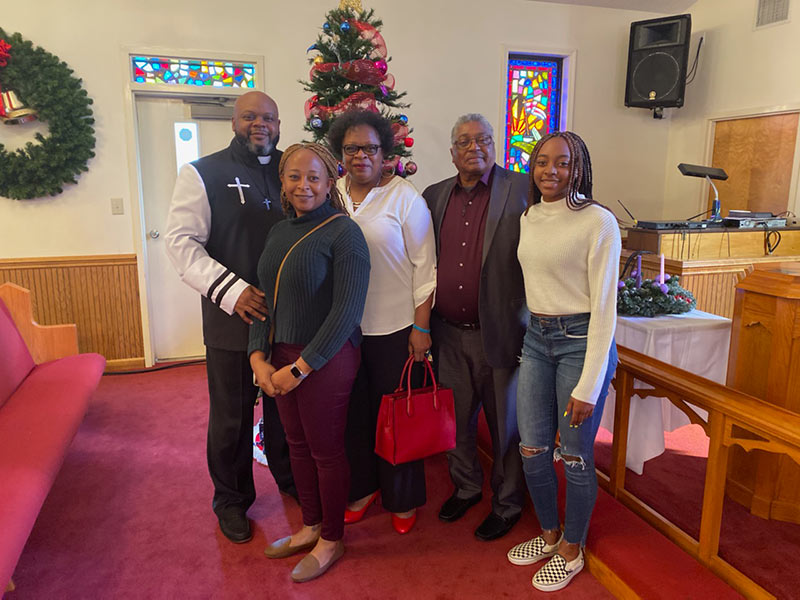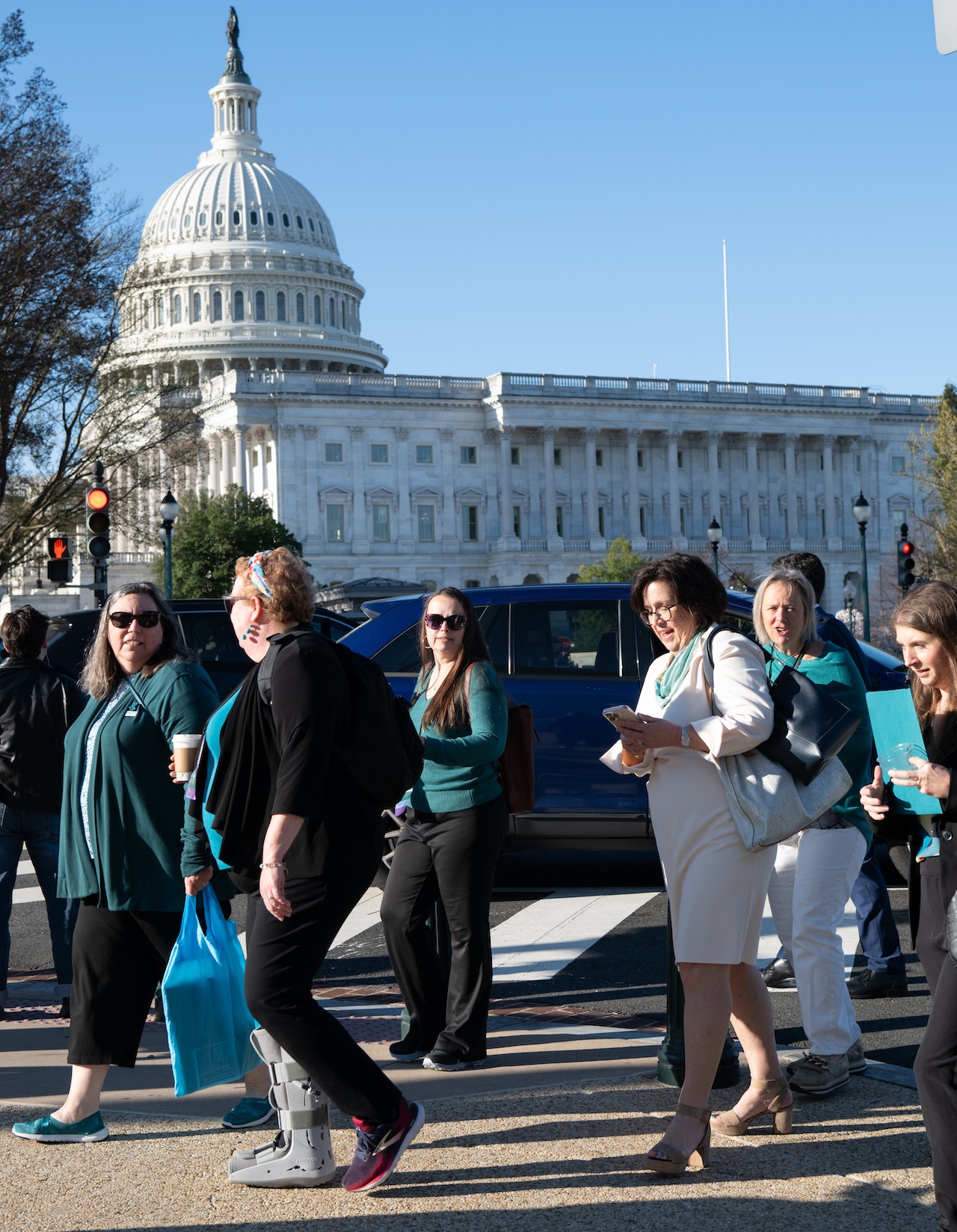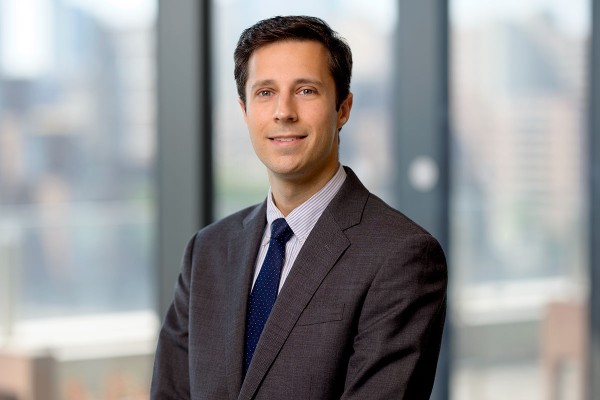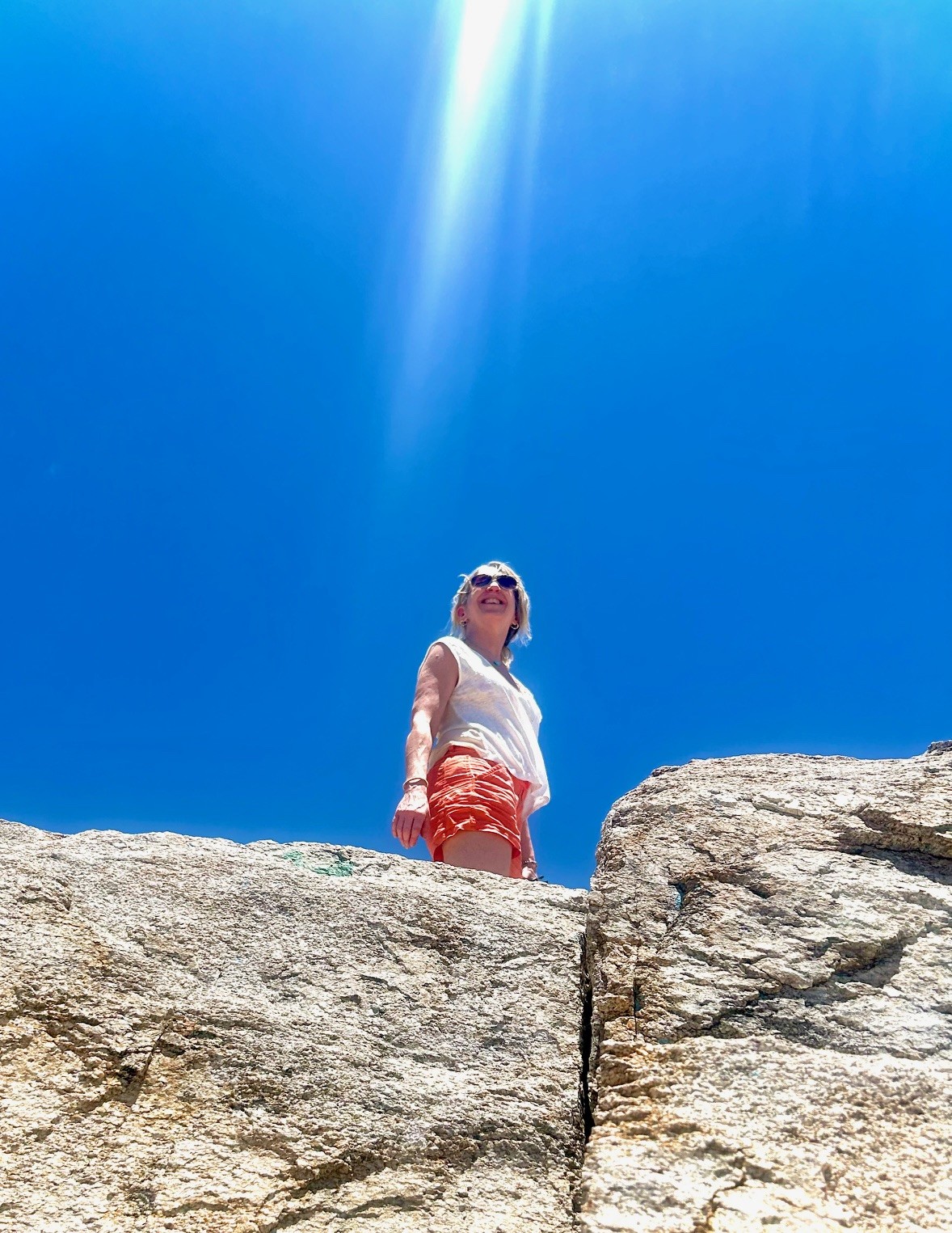The world works in ironic and sometimes painful ways
Yvette Jives, a nurse and social worker in North Carolina, has spent a lifetime helping others. She developed a women’s health program at the community center where she worked for 15 years (after working for 14 years in a hospital), monitoring patients’ cervical and breast cancer screenings, diagnoses and treatments. And yet in all that time, neither she nor her staff had ever encountered anyone with ovarian cancer … until she herself was diagnosed in 2011.
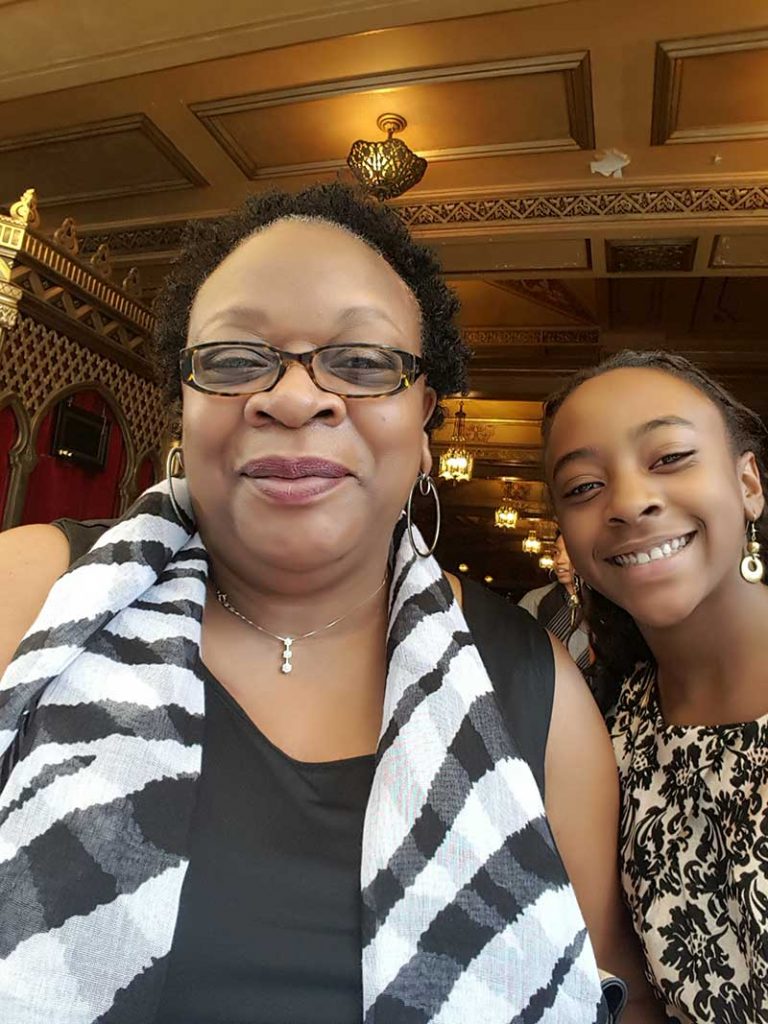
“The first thing that went through my mind was ‘why me?’” recalled Yvette. “I had made sure so many women had the resources and support they needed, the follow up care. I was always so active in making sure things were in place for other people, I just never thought about me being diagnosed.”
Because she had no experience with ovarian cancer despite all her years in healthcare, Yvette poured herself into researching everything she could about the disease. Of course, this came after the initial stages of grief.
“I was pretty angry. And then I was in denial. Then I went into shock,” Yvette said. “And then I just put myself into functional mode because I knew I had to have surgery. I had a lot of things to put into place, so I didn’t really have time to feel sorry for myself.”
Letting go of control
Yvette had to ensure that her team at work could continue to serve patients in her absence. She had to make sure her husband would be okay, since he was on dialysis at the time. She thought about her four children, and her 12 grandchildren, whose lives she is extremely involved in. She didn’t realize how much she was holding in while she was trying to hold it together until she went to her hairdresser.
“She’s a very Christian person,” Yvette said, “and she just put her hands on me and instantly knew there was something wrong. She put her arms around me, and she prayed and prayed. I didn’t realize the outer exterior I was putting up and she helped me work through it.”
It wasn’t easy for Yvette to give up control, but she let go of so many things and let her children take over. And once she did that, she says she was fine. “They just stepped in and encased me with love and support.”
Creating HERS
As Yvette dug into researching everything she could about ovarian cancer, she realized there were no support groups in her area. There was no literature available in her community. Ovarian cancer was essentially invisible. And in speaking with different medical professionals, she saw the barriers to care that are all too common for women of color.
“As I thought more about the symptoms, and realized the statistics, and how it was impacting women of color, I decided I had to commit myself to bringing visibility to ovarian cancer, so I created HERS.”
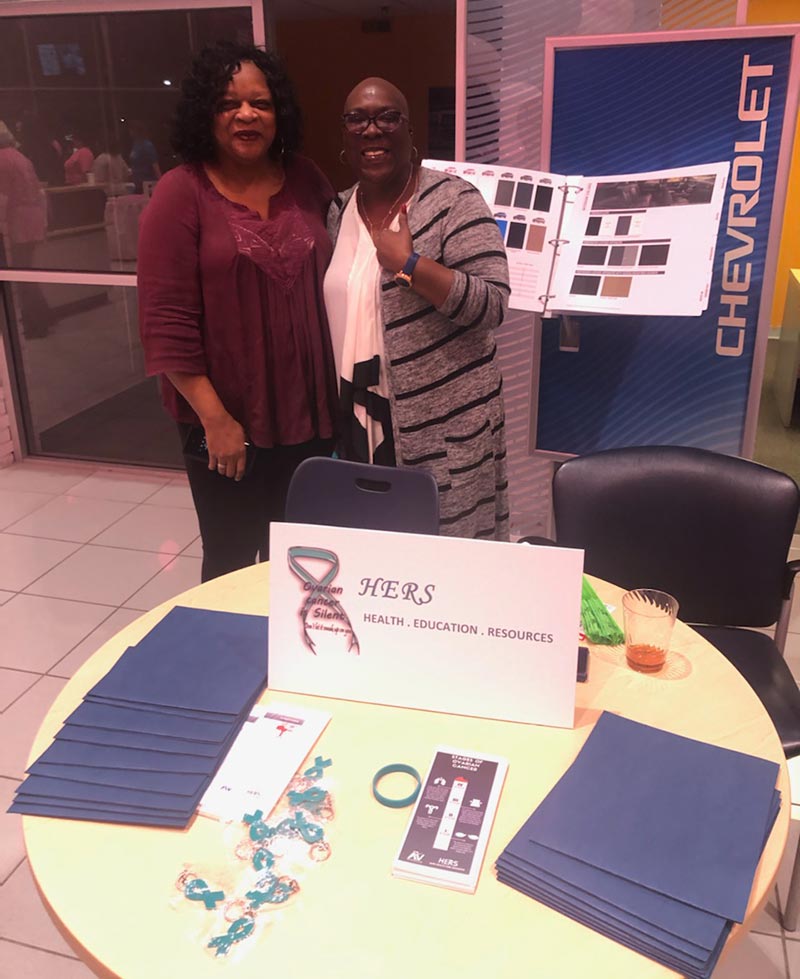
HERS stands for Health Education and Resources, and Yvette founded it in 2017. Her experience as both a nurse and a social worker proved invaluable as she began to network her way throughout the community, identifying the gaps for women of color, providing a service to the uninsured and the under-insured. Yvette holds community events – with meals, childcare, transportation and interpreters – in order to talk about symptoms of ovarian cancer. Financial resources needed to remain in treatment. How to navigate the healthcare system. She coaches women on how to speak with their doctors so that they can be heard.
“Getting women to have their own voice, to become familiar with their family history,” said Yvette. “To advocate for themselves. Some women feel that because they are on Medicaid that they don’t have a right to question their doctor or the treatment he’s proposing.”
Empowering women; educating doctors
In addition to ensuring that women use their time with their doctors as impactfully as possible, making sure they ask for clarification of terms they don’t understand, or ensuring they walk out of the office with a plan, Yvette knows that this burden does not and should not lie with the patient alone.
“I’m not trying to say the doctors are prejudiced,” Yvette explained, “but systemically and historically, it’s ingrained.”
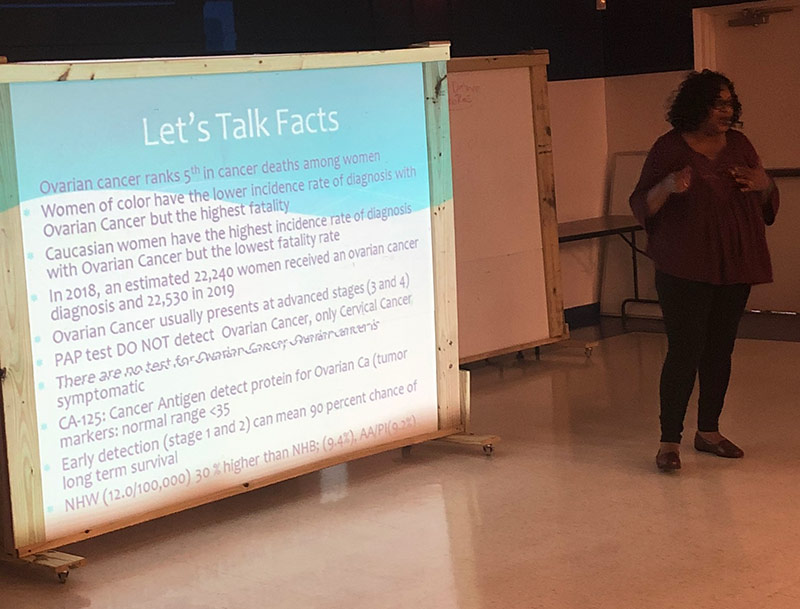
She wants to help doctors be aware of the unconscious bias we all possess, because she knows that if they can acknowledge that, they can be more open to what their patients are saying to them, and hopefully not brush off symptoms that are too often easily dismissed, especially among women of color. Yvette hopes that HERS can be a model that can be scaled out to other communities, as well.
A support system
Yvette is the oldest of six siblings and has always been considered the matriarch of the family. But she leans on her family now – siblings, children, husband – for support with her outreach. They help with the PR, organizing events, getting the word out about HERS. “My husband doesn’t know any strangers, so he’s just able to open up to people and say, ‘let my wife talk to you about her program.’” He once got an entire dinner donated for a program with 30 attendees.
She is also supporting other women facing an ovarian cancer diagnosis through OCRA’s Woman to Woman program. “Nobody knows what you go through except for another cancer patient,” Yvette said, recalling the time she lost her hair and her daughter helped cut it off.
“She just put a chair in our bathroom, and my oldest daughter, I’d say she kissed away the hair. She kissed away the tears,” Yvette said.
She tells other women now that they don’t have to feel that they are vain when they’re upset about losing their hair. “It’s a part of you. You lost a part of you. And you have no control and it’s okay.” These are the stories Yvette feels it’s important to share.
Life’s lessons
Family is everything to Yvette. She and her husband have been married for 40 years. They spend their time going to jazz concerts (her favorite musician is Trombone Shorty), enjoying family fish fries and cookouts, swimming, traveling around the county and state to see their grandkids’ sporting events.
But when she was undergoing treatment for ovarian cancer, she had to learn to let her family take over and make some decisions. That’s the advice she would give to others now.
“Let that love come in. You don’t have to make sure everybody is okay,” Yvette said, “you lose sight of the fact that you’re the one that’s going through this. It’s okay to be vulnerable. Once I did that, it was like a whole big burden was taken off of me.”
